Building the future of Web AI Agents
Learn about the intersection of LLM agents and browser navigation. Technical insights on building AI-powered tools that actually work.
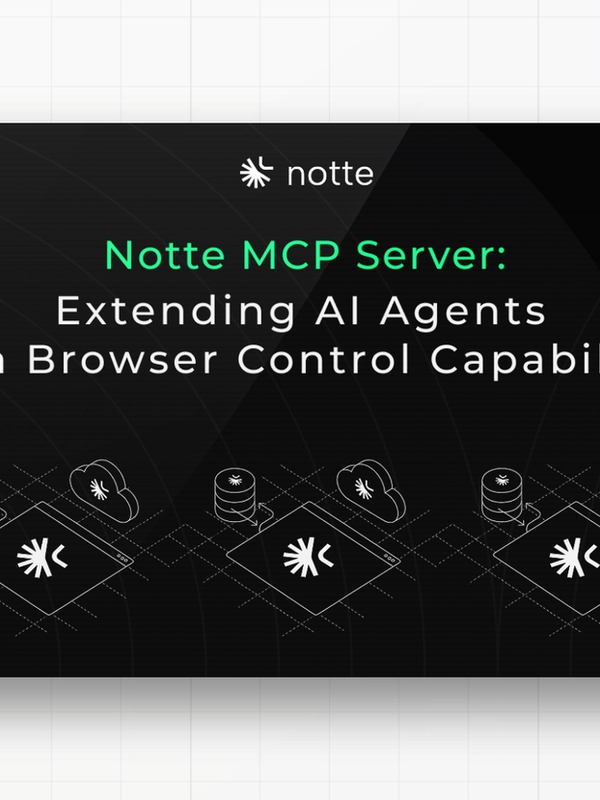
Notte MCP Server: Extending AI Agents with Browser Control Capabilities
 Lucas
Lucas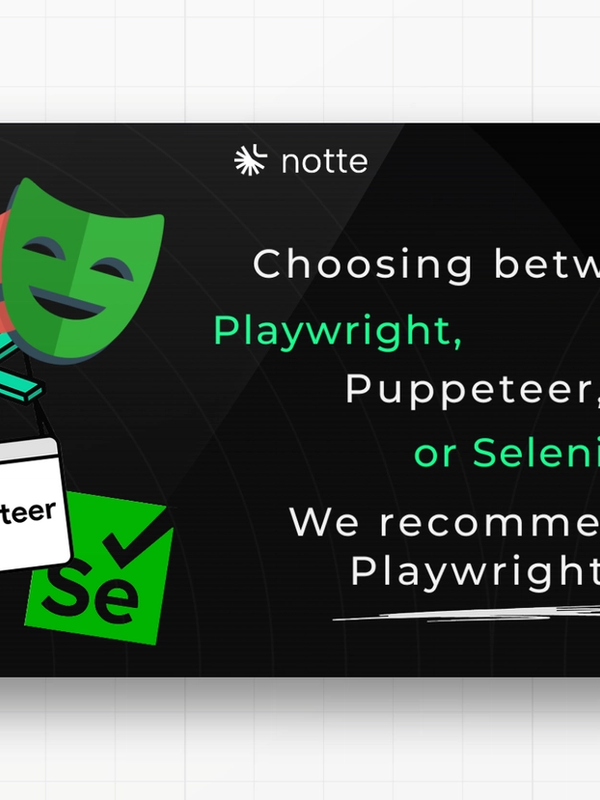
Choosing between Playwright, Puppeteer, or Selenium? We recommend Playwright
In web automation and testing, three tools tend to lead the field: Playwright, Puppeteer, and Selenium. Each tool has its own features and benefits. However, for the most powerful and reliable option, Playwright is the best of the three. At Browserbase, we support all three frameworks. We have seen why developers and teams often choose Playwright for modern automation. In this article, we will break down the key differences and explain why Playwright reigns supreme. We'll also check out Browserbase's new open-source library called Stagehand: the robust, AI-powered successor to Playwright.
 Andrea
Andrea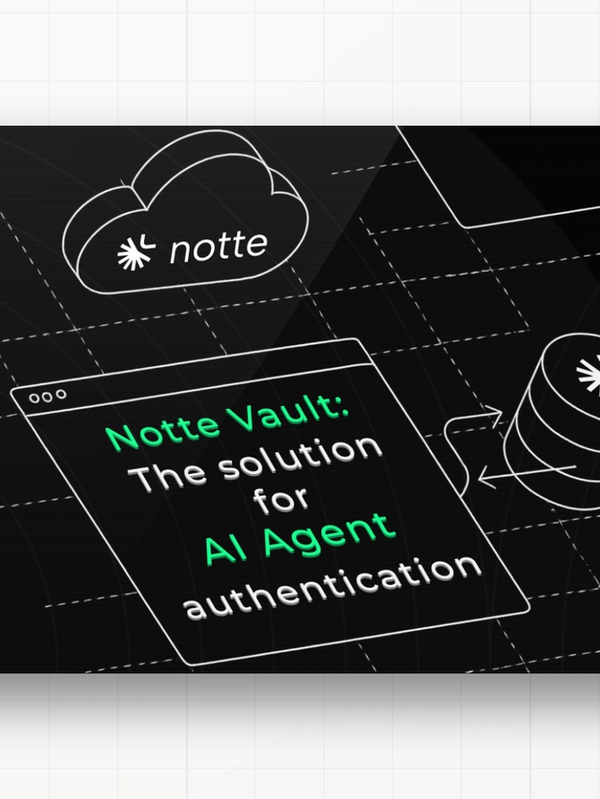
Notte Vault: The solution for AI agent authentication
 Leo
Leo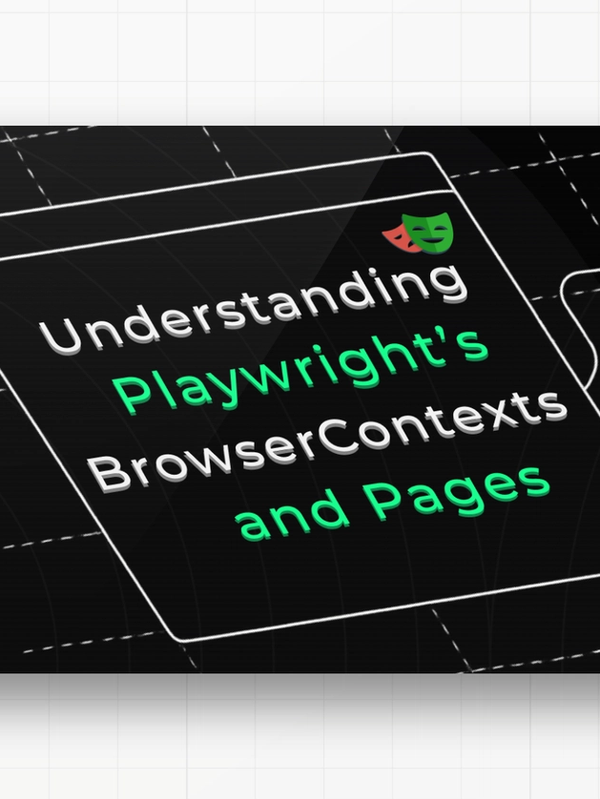
Understand Playwright's BrowserContexts and Pages
Playwright (and Puppeteer) exposes its API through Browser, BrowserContext, and Page objects with a blurry definition of their boundaries. This article covers their definition, how to leverage them, and how to avoid common pitfalls.
 Lucas
Lucas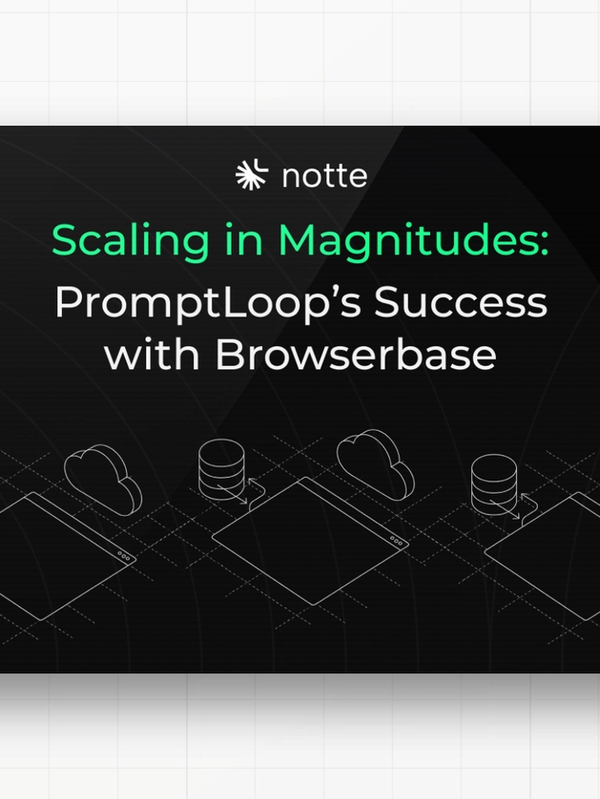
Scaling in Magnitudes: PromptLoop’s Success with Browserbase
PromptLoop empowers mid-market sales and go-to-market teams by enabling them to target the right accounts and boost win rates through efficient AI-powered automation. Their platform offers a seamless solution for navigating and analyzing thousands of company websites in real time, categorizing entities, and managing large-scale research tasks with ease. Leveraging Browserbase has become a pivotal move for PromptLoop, allowing them to scale web data retrieval effortlessly and focus engineering resources on core innovations.
 Sam
Sam